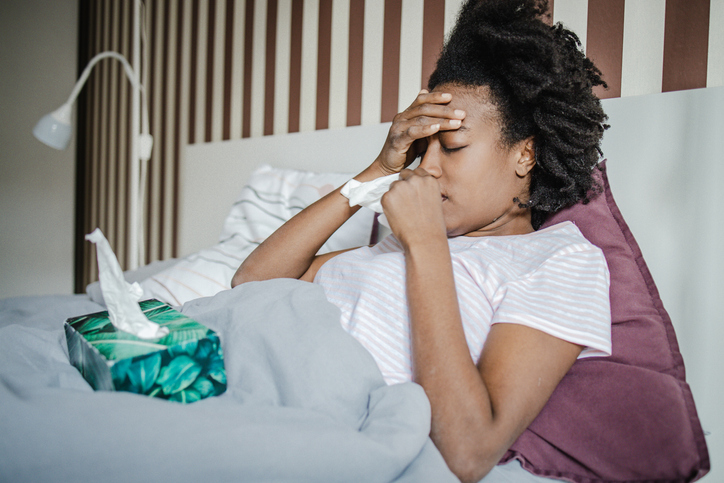
Source: blackCAT / Getty
When that first little scratch in your throat begins, you know it’s on. You’re getting sick. You pray, beg, hope, manifest, negotiate and do all you can to stop it. You really don’t want to wake up the next day with full-blown cold or flu symptoms. You know that if you do, you’ll have to cancel everything until…you’re not sure when. Getting sick seriously disrupts your day. The CDC reports that symptoms of the average flu last between three to seven days, but for some can last up to two weeks. Everybody hopes to be the lucky ones for whom symptoms are short. Some of that is out of our control, but some of it isn’t.
The end of symptoms doesn’t necessarily mean the end of quarantine. Speak to your doctor about when it is safe to get back out into the world in order to prevent the spread of illness. That being said, for your own comfort, it is worth it to know of some ways to shorten symptoms.
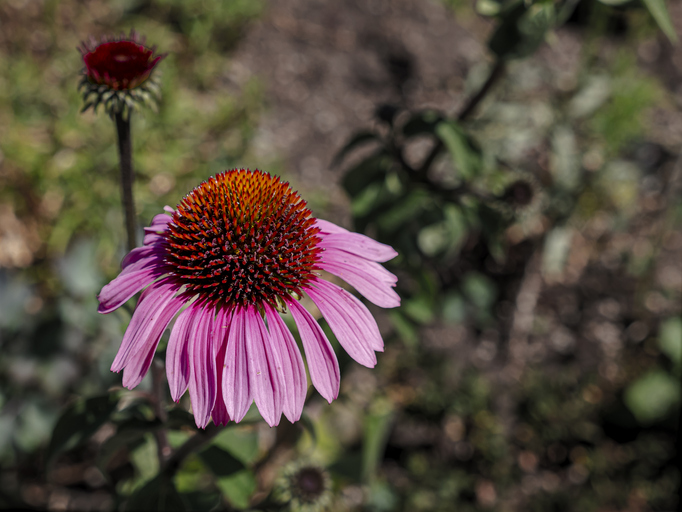
Source: Moelyn Photos / Getty
Echinacea
Echinacea is part of a group of flowering plants and is available in many forms, including tea, pills, extracts and liquid droppers. This herbal remedy has been used for centuries to prevent colds as well as shorten symptoms when colds occur. Experts suggest it works by activating chemicals in the body that fight inflammation, which ultimately minimize symptoms of an upper respiratory infection. One study published in the National Library of Medicine looked at participants who took Echinacea regularly for four months and showed a positive response to cold symptoms. Do speak to your doctor before taking Echinacea to make sure it doesn’t interfere with medications, and to discuss a safe duration to take it.
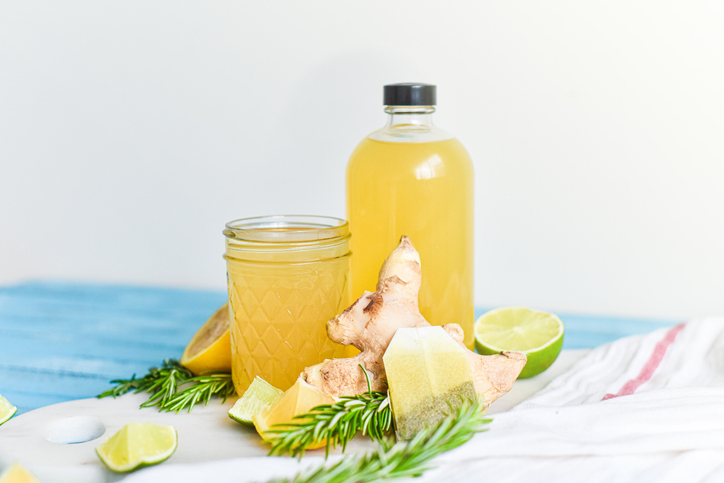
Source: photo_chaz / Getty
Kombucha
Your favorite bubbly drink might help you feel better, quicker. Most people know that probiotics can regulate digestion, but did you know they can fight an upper respiratory illness, too? One strain of bacteria in particular called Lactobacillus, L. casei 432 has been shown to shorten the duration of symptoms, according to the National Library of Medicine. Of course, you don’t have to get your probiotics from kombucha – you can also get them in pill or capsule form. But those suffering from pill fatigue might prefer to drink their healthy bacteria. Plus, staying hydrated is important when you’re sick.

Source: FreshSplash / Getty
Sleep
Everyone who cares about you probably says, “Get plenty of rest” when you’re sick. And they’re onto something that the medical community has confirmed: sleep helps your body fight viruses. Getting enough rest helps activate your body’s T-cells, which fight viruses and bacteria, says the Journal of Experimental Medicine. It’s thought that, when you sleep, there’s a decline in your stress hormones. Stress hormone can interfere with the activation of T-cells, so the longer you sleep, the longer your T-cells get a fighting chance. Don’t feel bad about sleeping like a teenager until noon when you’re sick – your body needs it.
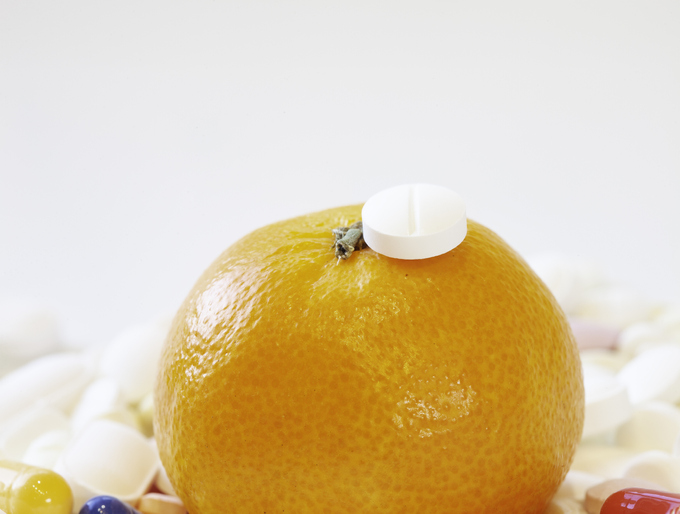
Source: Aitor Diago / Getty
Vitamin C
Vitamin C has long been touted as the virus fighter. It’s part of the reasoning behind the “An apple a day keeps the doctor away” logic. There’s science behind it, too. Taking vitamin C doesn’t reduce your chances of getting sick, but it can make sickness for manageable. Research out of Cochrane Library shows that taking Vitamin C regularly can reduce the duration of cold symptoms by eight percent in adults and 14 percent in kids. It can also reduce the severity of colds. Note that the recommended daily intake of vitamin C for non-pregnant women is 75 milligrams.
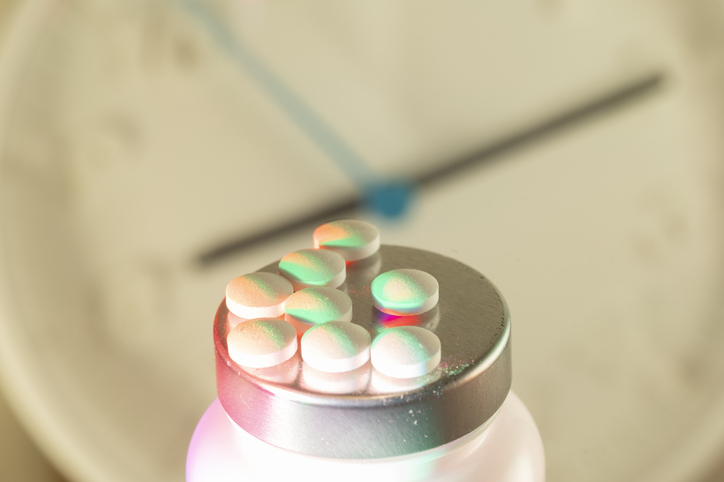
Source: Aitor Diago / Getty
Zinc Lozenges
To say that anything is “magic,” wouldn’t exactly be the correct medical terminology. But, zinc almost deserves the label because it can cut the duration of upper respiratory virus symptoms by 33 percent. That’s a significant difference and could mean you’re back up on your feet much sooner. A study published in the National Library of Medicine looked at participants who took between 80 to 92 milligrams per day and found their symptoms ended 33 percent quicker than the control group. Do note that zinc can cause nausea and should never be taken on an empty stomach.
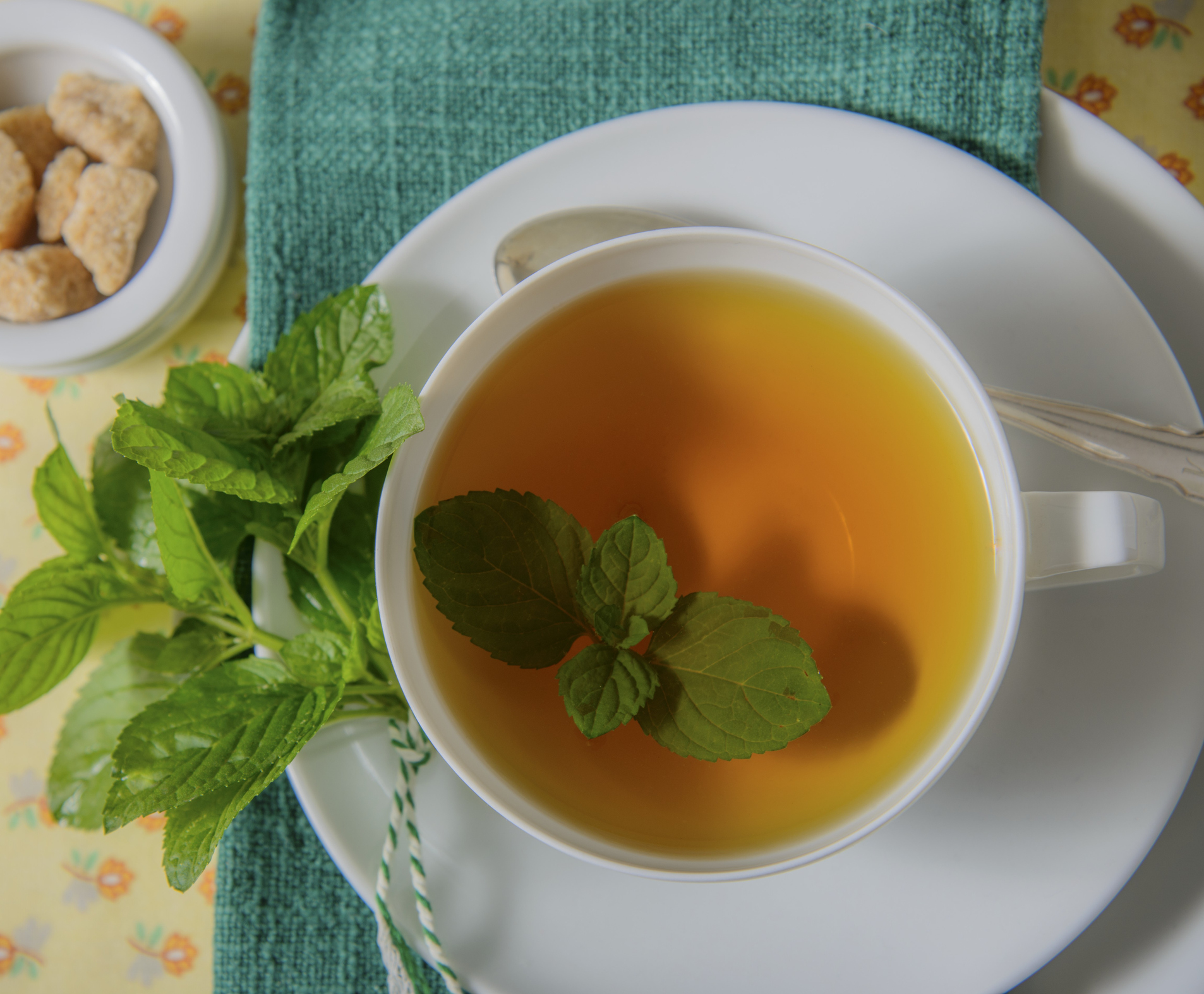
Source: Benary, Katrin / Getty
Hot Liquids
Tea and chicken noodle soup aren’t just comforting – they can help fight nasty congestion when you’re sick. This works on two levels, because congestion can also interfere with your ability to get virus-fighting sleep at night. Hot liquids have been shown to help thin mucus, making it easier to expel and allowing you to clear your body of it quicker. The findings were published in the National Library of Medicine. Whether it’s through miso soup, chicken noodle soup, hot tea or beyond, get your hot liquids when you’re sick. Just avoid coffee when ill, as this can interfere with good sleep, too.
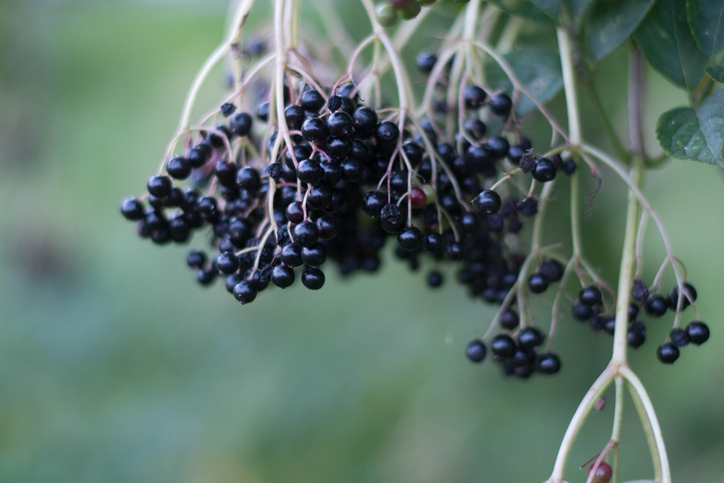
Source: Crispin la valiente / Getty
Elderberry
Elderberry, also called Sambucus, is part of a flowering plant group that’s loaded with antioxidants and vitamins that can boost your immunity. Elderberry comes in many forms including capsules, teas and powders, but one study out of the National Library of Medicine examined the effects specifically of black elderberry syrup. Participants took 15 milligrams of elderberry syrup, four times a day for five days when sick. Their symptoms ended on average four days sooner than those who did not consume the syrup.









